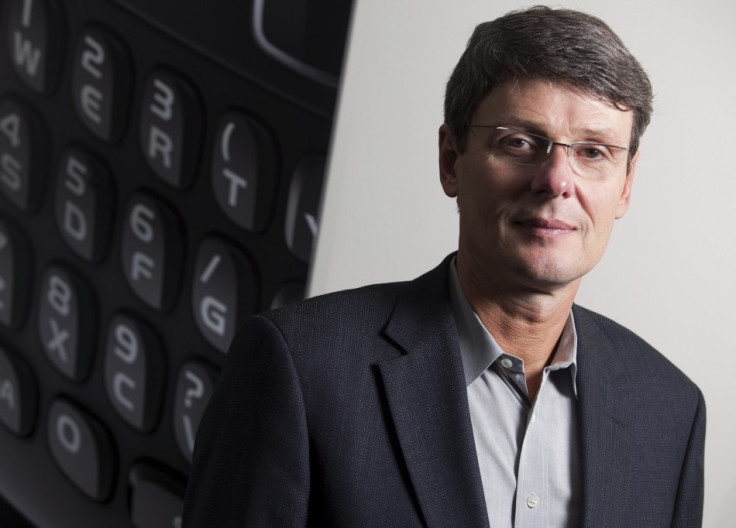CEO Shake Up at BlackBerry: Too Little Too Late?

The first day in a new job is never going to be an easy one, but on 23 January Thorsten Heins walked into one of the least enviable positions in business, as he took over as chief executive officer at Research in Motion.
Responsible for the production of BlackBerry smartphones and tablets, RIM has had a more turbulent 12 months than anyone else in the technology industry; and with the departure of RIM's founder Mike Lazaridis and his former co-CEO Jim Balsillie, Heins has an uphill battle like no other ahead of him.
A seemingly never ending catalogue of errors throughout 2011 has made its mark on the Canadian company. Its share price is hovering around the $15.80 mark, having fallen more than 75 percent since January 2011 and its US market share has tumbled from 30 percent at the start of 2011 to less than five percent by December.
RIM may claim to have $1bn in the bank to do with as it likes, but just six months ago it had $2bn; in an industry that is growing exponentially every year the BlackBerry brand is declining, having failed to keep up with the competition.
The year started in high hopes, with the PlayBook tablet launched and due to take on the dominant Apple iPad in a market that was proving highly lucrative. Priced similarly to the iPad and claiming to offer the same high levels of design and quality, the PlayBook could have been the ideal companion device for any BlackBerry phone owner.
But it was crippled. Firstly, the tablet was Wi-Fi only, with no option for 3G, and secondly as it had to be connected via Bluetooth to a BlackBerry phone, otherwise it had no email, contacts book or calendar. This flaw meant that it could only ever be bought by those who have a BlackBerry phone and wanted to keep it.
Nine months on from the PlayBook being launched and the tablet has seen price cut after price cut as retailers struggle to sell stock while competitors fly off the shelves.
BlackBerry once ruled the roost when it came to encryption, offering business-friendly protection of emails and text messages between devices by routing all data through RIM's own servers. This meant that businesses could hand out BlackBerrys to employees, safe in the knowledge that any messages sent between them would be safe.
Recently, however, Apple's iPhone and a range of Android devices have offered similar security options and 2011 saw major companies switch from RIM to Apple.
Next came the August riots, which saw thousands of youths apparently use their BlackBerry phones to coordinate looting and attacks on shops; the hugely popular BlackBerry Messenger service was criticised for helping rioters organise themselves.
But this was nothing compared with the three-day blackout in October, which saw tens of millions of customers worldwide lose access to email, BBM and the internet on their BlackBerry phones. RIM initially failed to apologise, instead leaving the various network providers to issue apologies over Twitter to the millions of cut off customers.
After three days, RIM founder and co-CEO Mike Lazaridis issued a heartfelt apology in a YouTube video. This was certainly unexpected from a company CEO as big as Lazaridis, but the damage had already been done, as it was the very encrypted servers that offer BlackBerry its unique selling point that had failed.
In December RIM's awful year turned from a horror story to comedy, when it transpired that two executives were fired from the company after the plane they were travelling on was forced to divert due to their drunken fighting. It was claimed by airline staff that the two men "chewed through" their plastic restraints after drinking heavily.
RIM needs a shakeup. A range of so-called "superphones" are expected from the company later this year, along with the all-new BlackBerry 10 operating system, and a 2.0 update for the PlayBook is due in February.
At the time of writing, RIM's share price was at $15.90, having fallen 6.5 percent during Heins' first morning as CEO. Heins is going to have to pull off a turnaround worthy of Jobs at Apple if he and RIM want to stand a chance of surviving another year.
© Copyright IBTimes 2024. All rights reserved.






